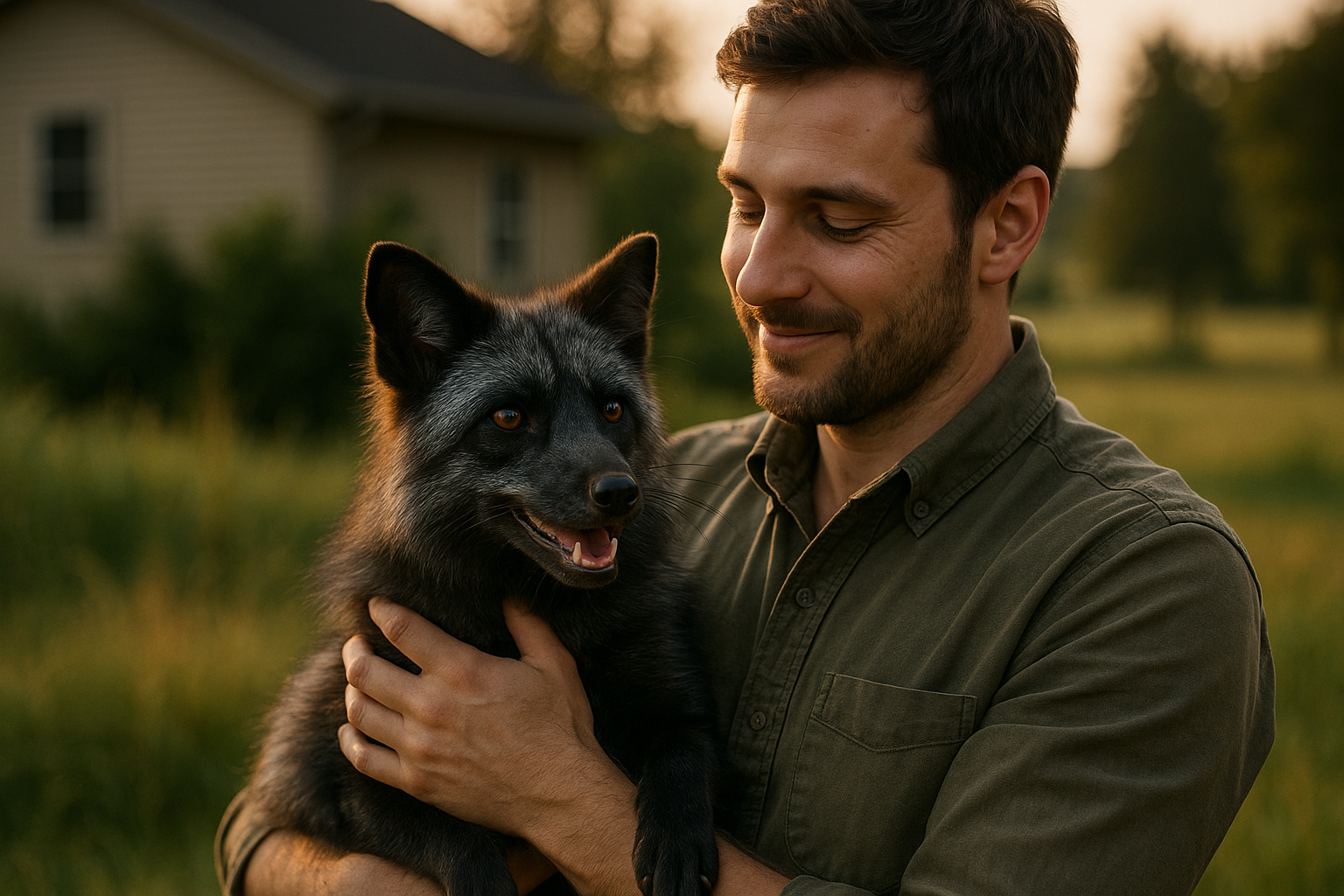Enthralling World of Domesticated Foxes: An Emerging Trend in Pet Ownership
Introduction: In the realm of pet ownership, a new trend is emerging, captivating the hearts of animal lovers worldwide. Domesticated foxes, with their playful nature and strikingly beautiful features, are stepping into the spotlight as unconventional yet fascinating pets. This article delves into the intriguing world of tame foxes, shedding light on their historical background, current trends, and impact on the pet market.

The Historical Perspective of Domesticated Foxes
Domesticated foxes have a unique and interesting historical background. Their story begins in the 1950s in Siberia, where a geneticist named Dmitry Belyaev started a selective breeding program for silver foxes. His goal was to replicate the domestication process of dogs, selecting foxes for their friendliness and tameness. The result was a new line of foxes exhibiting dog-like behaviors such as wagging their tails, responding to calls, and seeking human company.
Current Trends: Foxes as Pets
In recent years, domesticated foxes have been gaining popularity as pets, especially in the United States. However, they are not as widely accepted as traditional pets like dogs or cats. Many states have strict regulations and requirements for owning a fox, including obtaining special permits and providing ample space for the animal to roam and play. Despite these challenges, the allure of owning a unique and exotic pet like a fox continues to attract a niche group of animal enthusiasts.
The Market Impact of Fox Ownership
The rise in popularity of foxes as pets has also influenced the pet market. While precise figures are difficult to ascertain due to the niche nature of the market, the increased demand for domesticated foxes has led to a surge in the price of these animals, which can range from $400 to $2500. This trend has also stimulated the growth of related businesses, such as fox-specific pet supplies, dietary products, and veterinary services.
Research Insights: Understanding Domesticated Foxes
Scientific research into domesticated foxes is ongoing, with many researchers focusing on their cognitive abilities, behaviors, and genetic differences compared to their wild counterparts. Findings have shown that domesticated foxes exhibit a range of complex behaviors, such as problem-solving skills, social learning, and even emotional attachment to their human caregivers. These insights not only enhance our understanding of foxes but also provide valuable information to prospective fox owners.
An Engaging Yet Considerate Trend
While the trend of keeping domesticated foxes as pets is engaging and distinctive, it also raises important considerations. These animals require a great deal of care, including specialized diets, spacious living conditions, and regular mental and physical stimulation. Moreover, potential fox owners should also consider the ethical implications of keeping a traditionally wild animal as a pet, including the risk of potential health issues and behavioral problems.
In conclusion, the world of domesticated foxes offers a captivating glimpse into an unconventional aspect of pet ownership. As this trend continues to evolve, the need for comprehensive information, responsible practices, and dedicated care becomes more critical than ever. As with any pet, owning a fox should be a decision made with thorough research and deep consideration, ensuring the well-being of both the animal and the owner.




